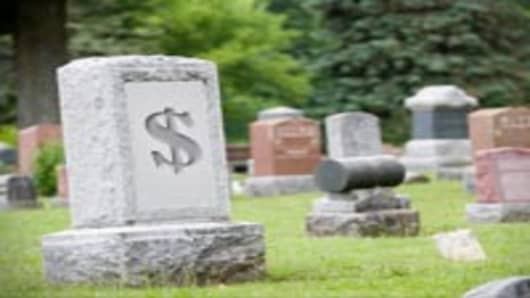My first objection to this is that dead people actually do have rights. Sure, death deprives the dead of certain rights—the right to vote comes to mind. In France, the dead can marry—but almost everywhere else the right to marry or divorce ends with death.
But almost every culture everywhere respects the rights of the dead to remain undisturbed. Bans on grave robbing, corpse mutilation and necrophilia all seem to be instances of respecting the rights of the dead. Most people would find the concept of mandatory organ donation gruesome.
At least one U.S. court has held that the dead even have reproductive rights. That case arose after a man named William Kane deposited 15 vials of his sperm a month before he killed himself. In his suicide note—which he addressed to Deborah Hecht—William expressed a dying wish: "I hope you have our child."
William’s children from an earlier relationship did not like the idea of their father posthumously producing siblings. They sued and the trial court took their side, ordering the sperm destroyed. The case was overturned on appeal on the grounds that William had clearly expressed his intent to reproduce posthumously—and that his right over reproductive decisions extended beyond the grave.
McArdle might object that the dead do not really have the right to reproduce. Instead, she might say, what we see here is the court respecting the rights of the living William. After all, when he deposited the sperm in the bank he was alive. And when he wrote the note he was alive, too. So he wasn’t really reaching out from beyond the grave to have children.
But this same logic applies to inheritance. The dead do not bequeath property to their heirs—the living do. They make decisions about what will happen to their stuff in the event of their death. Inheritance is not about whether the dead own property—it’s about whether the living can give away their property upon the event of their deaths.
I suppose McArdle could object that our property rights shouldn’t include a right to dispose of them upon death. Everything we “own,” in that case, we would merely have a life tenancy in. When our life is over, our ownership ends. It goes back to the state of, well, not the state of anything, I guess. Just The State.
This would have all sorts of odd results. If I only possess a life tenancy in my property, what happens when I sell it to someone?
Let’s say I sell my house. Obviously, I can only sell what I own—which is a life tenancy. That life tenancy is linked to my life—not the life of the buyers. So the purchaser of the house would lose the house when I die.
Imagine what this would do to property rights. We’d all be worried all the time that we could be deprived of our property just because the original owner died. That’s a recipe for chaos and economic stagnation.
I know this seems absurd—but the absurdity is the result of the arbitrariness of the limitation of ownership to life tenancy. If we conceive of ownership more simply—as our laws and traditions actually do—we avoid this absurdity.
Another reason to reject life tenancy is it conveys rights to our property without consent and without justification. Ordinarily, we acquire property because it is given to us as a gift, because we manufacture it, because someone else consents to give it to us as part of a bargain, or because a court decides we are owed it in light of a violation by someone else of our rights.
Let’s say I make a chair out of some lumber I buy. It’s clear how I came to have property rights in the chair—I bought the lumber, I made the chair with it. In McArdle’s world, however, my property right over the chair would end at the grave. And someone else’s property right—namely, the government’s—would start there.
So where would the post-life tenancy property right of the government come from? Why did my manufacture of a chair create a property right for someone else in the chair after I am dead? The origin of this property right is mysterious because it isn’t like any other property right that exists.
I think that underlying the anti-inheritance position McArdle takes is a disturbingly expansive view of government. It only really makes sense if the ultimate owner of all property is really the government—the rest of us are just tenants, who get to use the government’s stuff while we’re alive. But why should anyone concede that all our stuff is actually the government's?
____________________________________________
Questions? Comments? Email us atNetNet@cnbc.com
Follow John on Twitter @ twitter.com/Carney
Follow NetNet on Twitter @ twitter.com/CNBCnetnet
Facebook us @ www.facebook.com/NetNetCNBC



